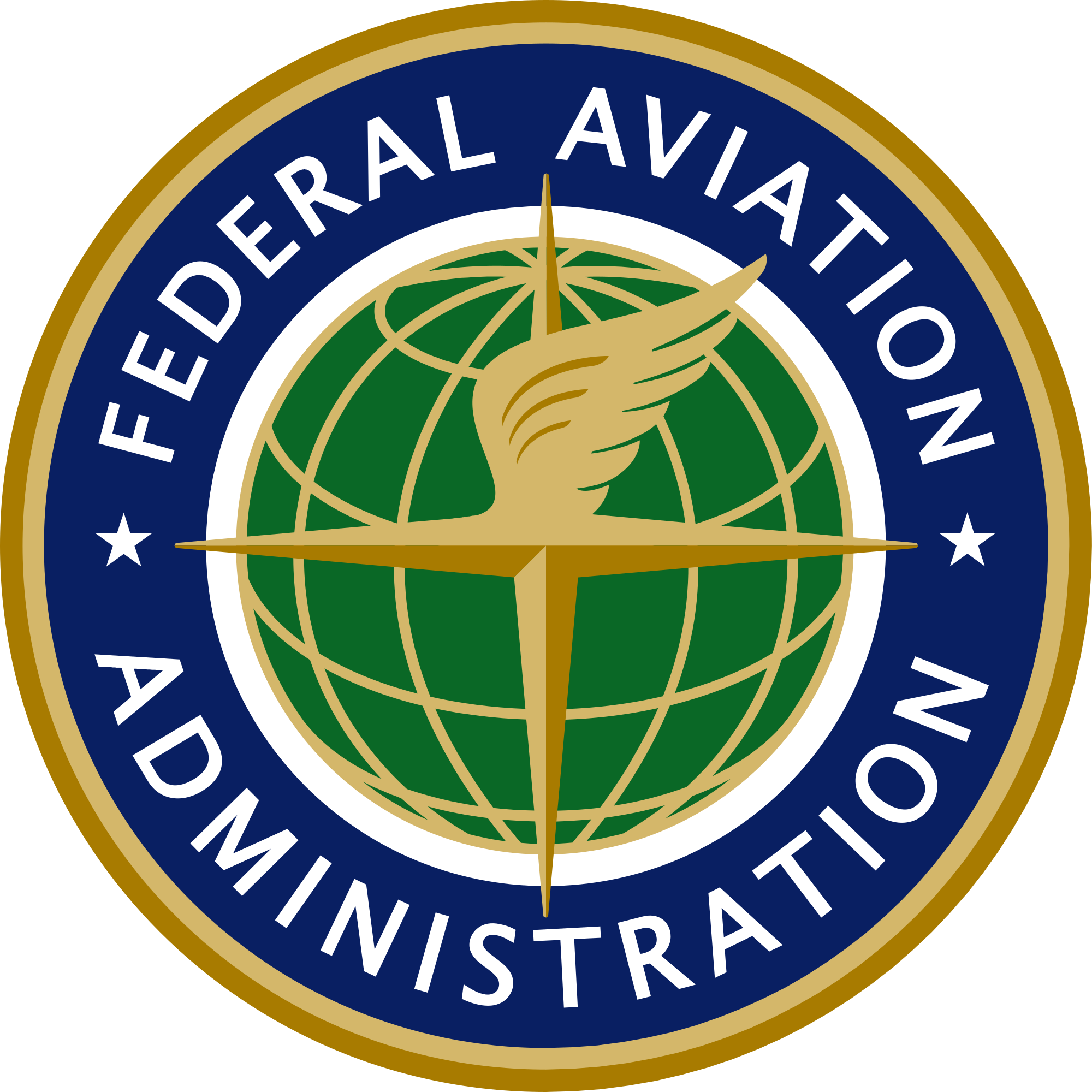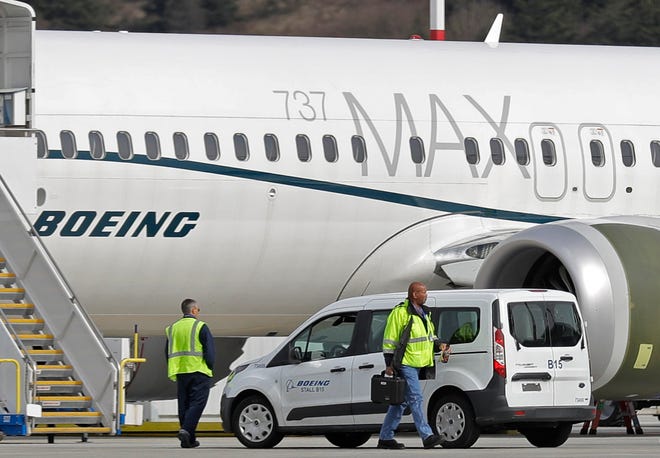U.S.
FAA sees need to raise standards for airplane pilot training around the world
 BRASILIA, Oct 28 (Reuters) - The head of the U.S. Federal Aviation Administration (FAA) said on Monday there was a need to raise standards for airplane pilot training around the world. FAA Administrator Steve Dickson is in Brasilia to participate in an airline industry conference. His remarks come after two deadly crashes involving Boeing 737 MAX aircraft have prompted safety reviews across the industry. FAA admin. on Boeing 737 Max: We're still deciding 'when, whether' plane will fly again  It has never been safer to travel on a scheduled air carrier in the U.S. Statistics show that time and again. But the loss of 346 lives aboard Lion Air & Ethiopian Airlines show work isn't done. Tuesday marks the one-year anniversary of the fatal accident of Lion Air Flight 610 in Indonesia. It's a time of somber reflection at the Federal Aviation Administration, and we express our deepest condolences to the families and loved ones of those who lost their lives. As FAA administrator, I assure the traveling public that the dedicated professionals at this agency will never rest in their unending mission to improve air safety. It has never been safer to travel on a scheduled air carrier in the United States. The statistics show that time and again. Nevertheless, the tragic loss of 346 lives aboard Lion Air Flight 610 last year and Ethiopian Airlines Flight 302 in March underscore that the work of safety is never done. Recent reports on Lion Air Flight 610 from the Indonesian National Transportation Safety Committee and the international Joint Authorities Technical Review panel, however, highlighted areas for improvement by regulators and industry in certification, maintenance, training and procedures. The world's aviation community must maintain its focus on deepening its understanding of how human interaction affects the safety of the machines we fly. This will require regulators to work closely together to understand different viewpoints, reexamine long-held assumptions and agree on changes to achieve the next level of safety. With very few exceptions, accidents occur as the result of a chain of events. Modern data sharing and safety management systems help identify and mitigate risks to break the accident chain before a safety incident occurs. But we must enhance the use of modern data sharing and safety management systems throughout the industry to generate actionable data that will enable even more proactive steps to mitigate risks. It won't be easy, but I am nonetheless encouraged. In the months since the Lion Air and Ethiopian Airlines accidents, the world's aviation regulators have come together like never before to understand what went wrong and how to prevent tragedies like these in the future. The FAA is fully committed to address all of the recommendations raised by investigators, including those that pertain to when, whether or how the 737 Max will return to service. As we have said repeatedly, the aircraft will fly only after we determine it is safe. The FAA is committed to raising the bar for safety both in the United States and around the world. The traveling public - and the memory of those so recently lost - demands it. Steve Dickson is the administrator of the Federal Aviation Administration. |
Pilots Assoc: After
Boeing 737 Max crashes, pilots need voice in new aircraft approval
 Failures that caused Lion Air, Ethiopian Airlines crashes must be thoroughly identified, and all necessary corrective actions implemented. While we cannot know the depth of grief that the families and loved ones of the 346 victims of the Ethiopian Airlines and Indonesian Lion Air accidents are experiencing, the Air Line Pilots Association (ALPA) shares in the determination to leave a legacy of safety improvements in their honor. For airline pilots, ensuring the highest standards of safety has always been at the forefront of our flying careers. This week, Congress will examine the events that led to these two terrible tragedies and call on the aviation industry and regulatory authorities to make the changes necessary to safeguard the system. It is imperative that the failures that caused these accidents are thoroughly identified and all necessary corrective actions are implemented. This includes improvements in aircraft design, certification and pilot training. ALPA advises aviation regulators to make modifications to the certification process, including the rules that govern certification of "derivative models" on existing type certificates. The experience of line pilots who operate these aircraft every day must not be overlooked, and ALPA experts must have the opportunity to review both new aircraft and iterative designs to provide our valuable input. Finally, a minimum of two well-trained, highly qualified pilots in the cockpit for every flight must be the global standard for aviation safety. ALPA is committed to ensuring North America's aviation system remains the safest in the world, and we will be vital to the Max's safe return to service. The responsibility airline pilots shoulder on every flight is the reason we must be fully informed and involved in bringing the Max back. As we have for more than 88 years, ALPA will continue to help identify improvements not only during these investigations but also in the long term through the industry's risk-predictive, data-driven approach to enhancing safety. We will never stop fighting against those who put profits before the safety of passengers and crews. Whether it's the decision on the return of the 737 Max to service or the decision to take off on every flight, it's only safe to fly when your pilots say it is. Capt. Joe DePete is the president of the Air Line Pilots Association, International. |
What Boeing and CEO
Dennis Muilenburg need to answer about twin 737 Max jet crashes
When Boeing CEO Dennis Muilenburg goes before congressional committees this week, it might be the closest thing to a reckoning for the embattled corporation since two of its new 737 Max aircraft fell out of the sky in the past year, killing 346 people. Lawmakers will undoubtedly ask Muilenburg to answer for a corporate culture that served as a backdrop for the tragedies - one where federal regulators were too chummy with airline designers, competition with rival Airbus led to shortcuts, and complex systems imposed on poorly trained foreign pilots were a recipe for disaster. The world now knows what fundamentally went wrong, thanks to investigations by Indonesia, Ethiopia and a Federal Aviation Administration panel of experts. In both the crash of Indonesian Lion Air Flight 610 last October and the loss of Ethiopian Airlines Flight 302 five month later, the linchpin in fatal cascades of errors was a sensor failure linked to a new automated flight control system designed by Boeing. Loss of pilot control Created to prevent the plane from stalling, the system was errantly triggered in each accident to repeatedly push the nose of the aircraft down, causing pilots to lose control. Muilenburg testifies at a moment of crisis for his company. One of its hottest selling aircraft remains grounded, profits are sinking, Airbus is outstripping it in aircraft orders and the Justice Department is probing both crashes. "We at Boeing are sorry for the loss of life in these tragedies," he said in April, a refrain he is expect to repeat this week. In the months since hundreds died, Muilenburg and Boeing must have learned lessons. Assuming as much, here are five pertinent questions: Boeing CEO Dennis Muilenburg on April 29, 2019. ►Did competition with Airbus prove fatal? In a rush to compete with a new Airbus model providing better fuel efficiency, range and payload, Boeing recast the design of its top-selling 737, called it the Max, and avoided a more rigorous reclassification and retraining process by labeling it merely a newer version of the older 737. But the aircraft had new design features, including the problematic anti-stall software, that significantly differed from the older versions. ►Was the FAA too cozy with Boeing? For too long, the FAA has saved money by delegating regulatory authority to Boeing. The result in this case, according to the report by a panel of aviation experts, was that regulators learned about anti-stall software in "fragmented" fashion and couldn't make an independent assessment of its safety, even as Boeing was rendering the software even more powerful. Boeing has an opportunity ►Does Boeing have more of a duty, before selling its planes, to ensure that poorly trained pilots of cut-rate airlines in developing nations can fly them? Boeing failed to brief commercials pilots about its anti-stall software. This was particularly crucial in poorer countries rife with corruption, where pilot training and experience are lacking. When Boeing sold Lion Air billions of dollars worth of Max 737s, it could have taken steps to make certain they understood the new aircraft's intricacies. ►What's up with former Boeing chief technical pilot Mark Forkner? The FAA was furious this month to learn that Boeing withheld text messages by Forkner from 2016 in which he appears concerned about the anti-stall software. It turns out he might have been referencing concerns with a flight simulator. But he has declined to turn over documents to a grand jury, citing his Fifth Amendment right against self-incrimination. ►How do you win back the public's trust? Boeing historically has been slow to admit errors and quick to deflect blame. But this reticence must give way to an aggressive, Tylenol-style marketing campaign to educate and reassure the public that Boeing has learned lessons and is committed to regaining customer confidence. Airline crashes remain extraordinarily rare, which is why back-to-back crashes of brand new airliners were such a stunning system failure. Boeing has an opportunity this week to demonstrate that the system has changed, with short-term profits taking a back seat to a renewed commitment to safety. |



Ingen kommentarer:
Legg inn en kommentar
Merk: Bare medlemmer av denne bloggen kan legge inn en kommentar.